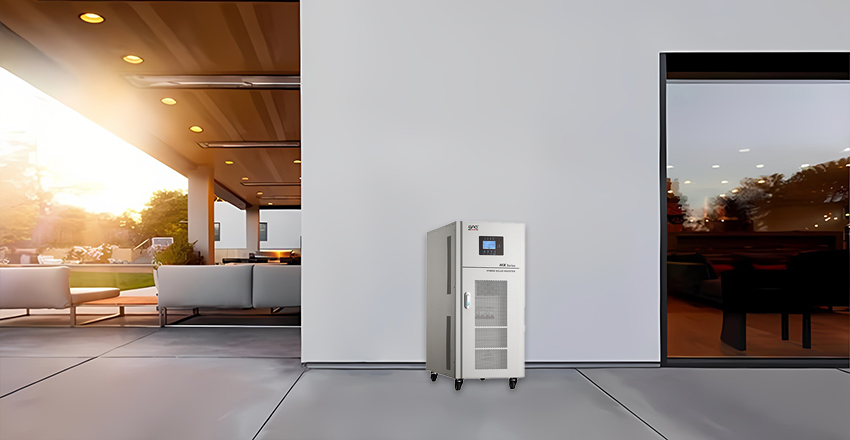Solar inverters are critical to achieving sustainable living by changing the way we harness, manage and harness solar energy. These devices play a key role in converting direct current (DC) generated by solar panels into alternating current (AC) that is compatible with household appliances and grid systems. In addition to their main functions, solar inverters contribute to sustainable development through energy efficiency, resource optimization and integration with modern energy solutions.

Our solar panels generate direct current from sunlight, but most appliances and grid systems use alternating current. Solar inverters effectively handle this conversion, minimizing energy loss and ensuring optimal system performance. High-quality inverters equipped with maximum Power Point tracking (MPPT) technology adjust their operation in different sunlight conditions to maximize energy output, making them indispensable devices for efficient use of solar energy.
One-inverter’s solar inverters enable homes and businesses to wean themselves off fossil fuels. By effectively managing solar energy, they achieve energy independence and reduce greenhouse gas emissions. Grid-connected inverters allow excess solar energy to feed back into the grid, supporting larger-scale renewable energy use while benefiting from a net metering program that reduces energy costs.
Modern solar inverters are designed to work seamlessly with battery storage systems, further enhancing their sustainability benefits. Hybrid inverters enable users to store excess solar energy for later use, such as at night or when the grid is disrupted. This capability ensures a reliable and consistent energy supply while reducing reliance on non-renewable energy sources.
Many solar inverters come with intelligent monitoring features that can provide insight into energy production and consumption. By analyzing this data, users can optimize their energy use, reduce waste, and ensure that their systems operate efficiently. This transparency encourages conscious energy consumption, in line with the principles of sustainable living.
Inverters facilitate grid integration by synchronizing solar power systems with the standards of the local grid. This capability not only allows users to output excess energy, but also contributes to the stability of the grid. Some inverters can adjust their output to suit grid demand, enabling a smooth transition to an energy infrastructure dominated by renewable energy.
Solar inverters improve the reliability and longevity of solar power systems by managing fluctuations in energy production caused by shading, temperature changes or panel degradation. This ensures consistent energy delivery and reduces the need for frequent system replacement, which is consistent with the goal of minimizing resource consumption.
By making solar systems more efficient and user-friendly, solar inverters encourage wider adoption of renewable energy solutions. Their role in integrating battery storage, enabling energy monitoring and supporting grid participation makes them a cornerstone of sustainable living practices.
Choosing the right solar inverter is crucial to maximising its sustainability benefits. Factors to consider include system size, compatibility with solar panels, and whether battery storage integration is required. Hybrid and micro inverters are particularly suitable for users who aim to maximize energy efficiency and resilience.
Solar inverters are not just technical components; They are the enablers of a sustainable lifestyle. By efficiently converting, managing and optimising solar energy, they play a key role in reducing environmental impact, promoting energy independence and integrating renewable energy into everyday life. As we move towards a greener future, investing in high-quality solar inverters is critical to realizing the full potential of solar energy and achieving long-term sustainability.